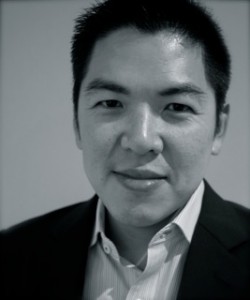January 1st, 2011 by Berci in Better Health Network, Research
No Comments »

 From Blog 4 Global Health — an “interactive blog from the Global Health Council’s Policy, Research and Advocacy team” — here’s The Top 10 in 2010 Global Health Communication. An excerpt:
From Blog 4 Global Health — an “interactive blog from the Global Health Council’s Policy, Research and Advocacy team” — here’s The Top 10 in 2010 Global Health Communication. An excerpt:
If global health communication was characterized by anything in 2010, it was the rise of Twitter and other social media among non-profit organizations as a way of bypassing increasingly irrelevant traditional media and taking their messages directly to their target groups. From the Global Health Council, we saw more and more of our members — large and small — embracing new media like blogging, micro-blogging and social networks like Facebook. At the year’s last meeting of our Global Health Communicators Working Group in November, I asked for a show of hands of those whose organizations were not using social media. No hands went up.
*This blog post was originally published at ScienceRoll*
December 30th, 2010 by Bryan Vartabedian, M.D. in Better Health Network, Opinion
No Comments »

We sometimes forget that public transparency can be scary. I’ve found this particularly true for doctors. And they tell me so. This tweet from MD Anderson’s Dr. Garcia-Manero hints that the daily digital repartee that I take for granted isn’t so easy for the newbie:

And this comment came in today from a rheumatologist, Dr. Irwin Lim of BJC Health. It illustrates nicely the hesitancy physicians sometimes feel:
 Our clinic’s business manager was pushing me to blog as a means to improve the profile of our group musculoskeletal clinic. I found myself quite afraid of this, as I had not previously participated in social media. I was also wary that I could not control patient comments. Eventually, I tiptoed into LinkedIn. I then started reading blogs and came across yours. Your posts have been very useful and have improved my resolve. A few days ago, I posted my first blog, and have since written a total of 6. It’s been quite enjoyable so far. The social media consultant engaged by the clinic wants me to now create content for YouTube. Some fear has returned, but I’ll hopefully be able to get over this, too.
Our clinic’s business manager was pushing me to blog as a means to improve the profile of our group musculoskeletal clinic. I found myself quite afraid of this, as I had not previously participated in social media. I was also wary that I could not control patient comments. Eventually, I tiptoed into LinkedIn. I then started reading blogs and came across yours. Your posts have been very useful and have improved my resolve. A few days ago, I posted my first blog, and have since written a total of 6. It’s been quite enjoyable so far. The social media consultant engaged by the clinic wants me to now create content for YouTube. Some fear has returned, but I’ll hopefully be able to get over this, too.
Is fear specific to doctors? No, but I think the issues are magnified with medical professionals. Image, social voice/personality, permanency, and fear of legal repercussions are among concerns that are disproportionately felt by doctors. So can we mitigate this fear in any way and break the barriers to entry for doctors? Read more »
*This blog post was originally published at 33 Charts*
December 21st, 2010 by DavedeBronkart in Better Health Network, Opinion
2 Comments »

 If you don’t truly understand how draining it can be to live with chronic illness, including chronic pain, go read The Spoon Theory right now. In five minutes it forever changed my own awareness of my wife’s arthritis and bone pain.
If you don’t truly understand how draining it can be to live with chronic illness, including chronic pain, go read The Spoon Theory right now. In five minutes it forever changed my own awareness of my wife’s arthritis and bone pain.
On Twitter I saw “spoonies” raving about this months ago, but I finally took time to read it: 2,100 words and worth every second. Also, on Twitter follow @bydls – “But you don’t look sick!” – and explore their smart website, where they’re wisely selling posters of the story for doctors’ waiting rooms, and everything else imaginable in modern outreach through social media.
These are smart people, and this is a powerful piece of writing.
*This blog post was originally published at e-Patients.net*
December 12th, 2010 by Bryan Vartabedian, M.D. in Better Health Network, Opinion
1 Comment »

 I suspect that in the next couple of years we’ll see the emergence of a viable social network for physicians. It hasn’t happened yet, but I suspect that we’re getting close. Physicians are increasingly dabbling in mainstream social sites.
I suspect that in the next couple of years we’ll see the emergence of a viable social network for physicians. It hasn’t happened yet, but I suspect that we’re getting close. Physicians are increasingly dabbling in mainstream social sites.
But maybe that’s a problem. After all, a doctor can only hang in so many places. If you have “The Facebook for Doctors,” do you expect us to spend our time there instead of on Facebook itself? Maybe we will, and maybe we won’t.
Beyond the obvious requirement of a network to deliver value, I think the rate-limiting factor is old-fashioned bandwidth. You can only be one place at a time. If I spend my days on Twitter, I’m not likely to spend my days on said doctor’s network. I will go there for particular things and to talk to certain people about specific issues, but like most doctors I’m not sure I can tell you exactly what I want. I’ll know it when I see it. (Actually I do, but I’m keeping it tip-top secret.) Read more »
*This blog post was originally published at 33 Charts*
December 8th, 2010 by DrWes in Better Health Network, Opinion
1 Comment »

The pros and cons of social media for physicians are nicely reviewed by a number of prominent medbloggers (including yours truly) by Bonnie Ellerin in her recent white paper (pdf). An excerpt:
There is a profound change sweeping the world of medicine. Technology is the driver, but it has nothing to do with a new drug, device or procedure. Rather it is about the change in physician behavior and mindset that technology — the Internet more specifically — has unleashed. Today, physicians of all ages and specialties are online, whether via laptop, desktop, or mobile.
With physicians’ acceptance of technology has come a new type of openness among a small but growing number. In the past, the only doctors who were likely to air views publicly were medical journalists. But, today, there are physicians who blog, tweet, email with patients, post videos, even check-in on Foursquare. If you have any doubt, just look at the “Favorite Blogs” section of a physician blogger or scan the list of followers/following of any doctor on Twitter, and you’ll get a sense of how many of them are getting social. Far more than you thought.
Read more HERE.
-WesMusings of a cardiologist and cardiac electrophysiologist.
h/t: @hjlucks on Twitter via Smartblog On Social Media.
*This blog post was originally published at Dr. Wes*
 From Blog 4 Global Health — an “interactive blog from the Global Health Council’s Policy, Research and Advocacy team” — here’s The Top 10 in 2010 Global Health Communication. An excerpt:
From Blog 4 Global Health — an “interactive blog from the Global Health Council’s Policy, Research and Advocacy team” — here’s The Top 10 in 2010 Global Health Communication. An excerpt:

















